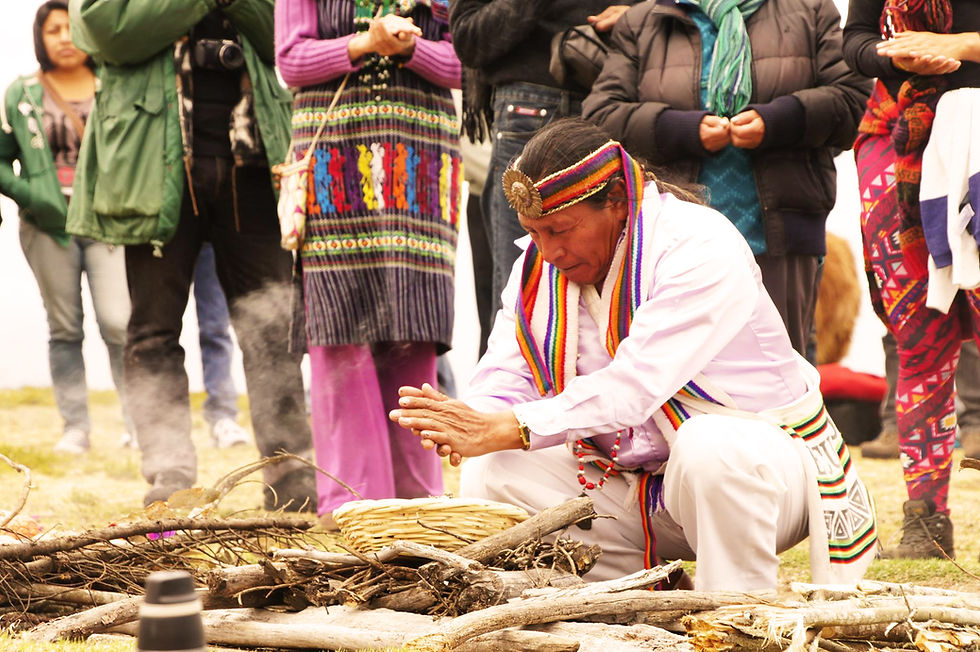Returning to Nature with the Maasai in Kenya
- ICCS Global
- Mar 24, 2019
- 3 min read
Updated: Mar 25, 2019

Written By: Sarah Foster
Many of us today are so distracted by the chaotic momentum of city life, caught in the traps of technological devices, mindless consumerism, striving for superficial acceptance and amassing personal wealth, that our intrinsic connection to nature has sadly been all but forgotten. Some struggle day to day just to keep their head above water, treading through the incessant flow of financial, educational and social challenges brought about by overenthusiastic capitalists, corrupt politicians, broken systems, and the great class divide.
Yet, upon this phenomenal, living, breathing rock that we call home, there are still cultures that continue to live immersed in the beauty of a land that is brimming with herds of the creator’s majestic creatures, and blessed with an abundance of deliciously nourishing foods and plant medicines. Coexisting harmoniously with nature is their way of life and they will do anything in their means to maintain all that this entails.
The nomadic, pastoralist Maasai tribe in Kenya and Tanzania, is one of these distinct societies that has, for the most part, avoided westernization and colonial cultural influences. Sankale Ole Ntutu, Maasai chief of the Maji Moto community in Narok, Kenya, has recognized the disconnect in the world today and the global impact that it is having on the environment as well as the health and quality of life for people living in this stressful condition.
Over the years, Sankale has had to fend off mining, agricultural and lumber companies who desperately want to exploit his peaceful home and strip the land of all its beautifully unique resources. Health supplement companies have approached him to harvest the aloe vera plants which grow in the Loita Hills. The Maasai rely heavily on this natural remedy for healing cuts and burns, and treating their cattle for illnesses like East Coast fever. They use the roots of the plants for making their traditional beer, and wild animals, such as elephants and buffalo, use aloe vera frequently when self-medicating to treat various infections and parasites.
As a leader, it is Sankale’s responsibility to protect the people, land, water and wildlife of the Maji Moto community, and now, because of this experience, he feels it is his duty to extend this authority to people outside of his country in order to reach greater goals of preserving the planet and the welfare of humanity.
Sankale has begun inviting guests from all walks of life and all countries to his village, helping them to reconnect with nature. He and his partner, Manon van Oldenbarneveld, and their Maasai team take people on expeditions, teaching them valuable wilderness skills and traditions from the Maasai culture that they can take home with them, enriching their busy lives with an awareness and serenity from the bush.
I recently met with Sankale in his homeland to learn about the Maasai culture firsthand, and I can honestly say that I’ve never before felt more welcomed into a community or at home. This truly is an exceptional experience that should not be missed.
Sankale is also working on an imperative project to take down fences throughout the Loita Plains that prohibit the Maasai from bringing their livestock to water and obstruct the wildlife from migrating and reaching essential water sources and salt lakes. Sankale states that the only major conflicts that arise in his community are as a result from the lack of access to water due to the fences that are being erected merely to declare ownership of land. This has never been part of the Maasai custom in the past and has had a very negative impact for people and animals across the region. It is something he wishes to eradicate now before more fences are constructed. This, as well as excavating several water wells that would be available to everyone living in or passing through the plains are his current top priorities.
The Earth is one glorious, interconnected ecosystem that we are all a part of. If we take this for granted we miss out on so much of the magic that is happening all around us. From the salty sands of the African desert, to the lush Amazon rainforest, through the bustling cities of each continent, down to the depths of the ocean, and up to the highest peak of the Himalayas, whatever occurs in one part of the globe affects each and every one of us, worldwide. It is our personal responsibility to each other and to this bountiful planet to wake up and unite in our priorities. We must open ourselves up to helping each other, to learn from one another; how to be our truest selves, to re engage with our intuition, and to stand strong in protecting the well-being of our magnificent home.
To find out more about the Back to Nature Bush Expeditions, visit this link or check out African Touch.
Learn and Contribute to the Garden of Eden Project !









Comments